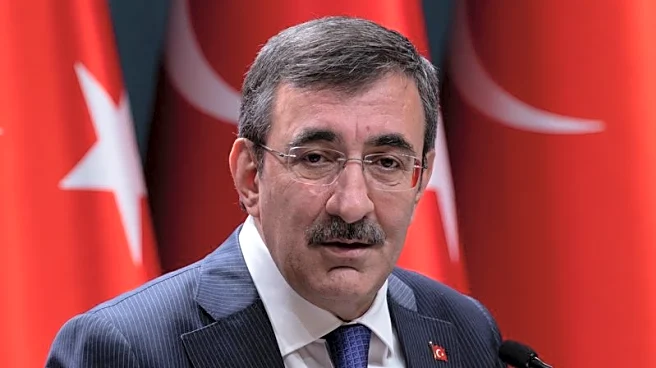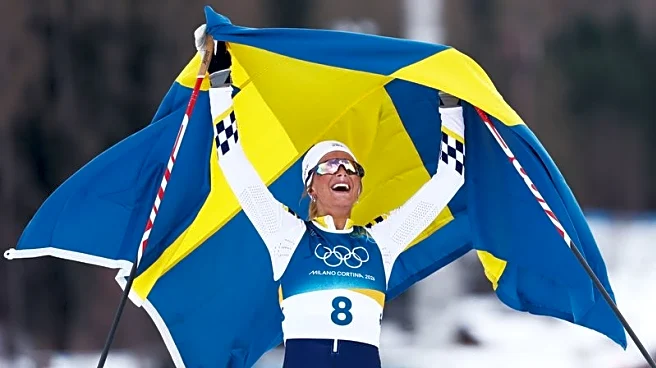What's Happening?
Lionel Messi has signed a new three-year contract with Inter Miami, extending his stay with the Major League Soccer (MLS) team until 2028. Since joining the club in 2023 from Paris Saint-Germain, Messi has been a pivotal figure, scoring 50 goals in 53
appearances. The announcement of his contract extension comes just before Inter Miami's MLS Cup playoff opener against Nashville SC. At 38, Messi continues to be a top performer, leading the league in scoring with 29 goals this season. His career, predominantly spent at Barcelona, where he set records with 778 appearances and 672 goals, has been illustrious. This new contract with Inter Miami is speculated to be his last, as he aims to defend Argentina's World Cup title in 2026.
Why It's Important?
Messi's contract extension with Inter Miami is significant for both the player and the MLS. His presence in the league has elevated its profile globally, attracting more attention and potentially increasing viewership and attendance. For Inter Miami, retaining a player of Messi's caliber ensures continued competitive performance and marketability. The extension also suggests Messi's commitment to the U.S. soccer scene, which could inspire further investments and interest in the sport domestically. As Messi approaches the twilight of his career, his influence on and off the field remains substantial, impacting team dynamics, fan engagement, and the broader sports culture in the U.S.
What's Next?
With the contract extension, Messi is set to continue his journey with Inter Miami, focusing on upcoming matches and the MLS Cup playoffs. His performance will be closely watched as he aims to lead the team to further success. Additionally, Messi's role in the 2026 World Cup, hosted by the USA, Mexico, and Canada, will be a focal point, potentially marking a significant chapter in his career. The decision on his retirement will likely hinge on his performance in these competitions and his physical condition over the next few years.
Beyond the Headlines
Messi's continued presence in the MLS could have long-term implications for the league's development. His influence might encourage other high-profile international players to consider the MLS as a viable option, enhancing the league's competitiveness and global standing. Furthermore, Messi's involvement in U.S. soccer could contribute to the sport's growth at the grassroots level, inspiring young athletes and increasing participation rates. The cultural impact of having a global icon like Messi in the U.S. extends beyond sports, potentially affecting media, sponsorships, and the entertainment industry.

















